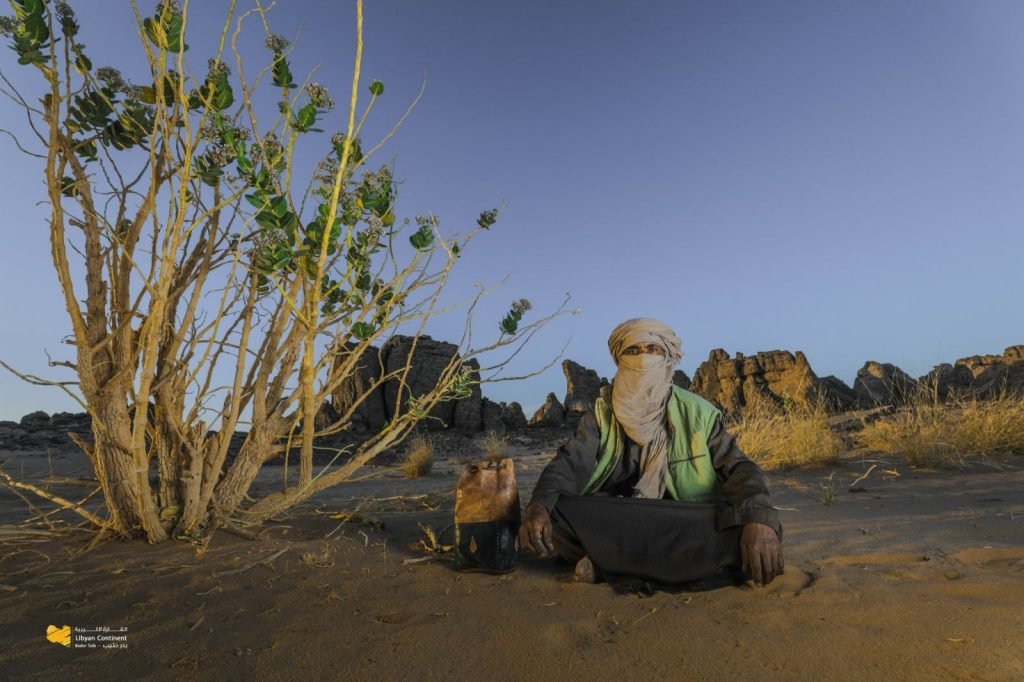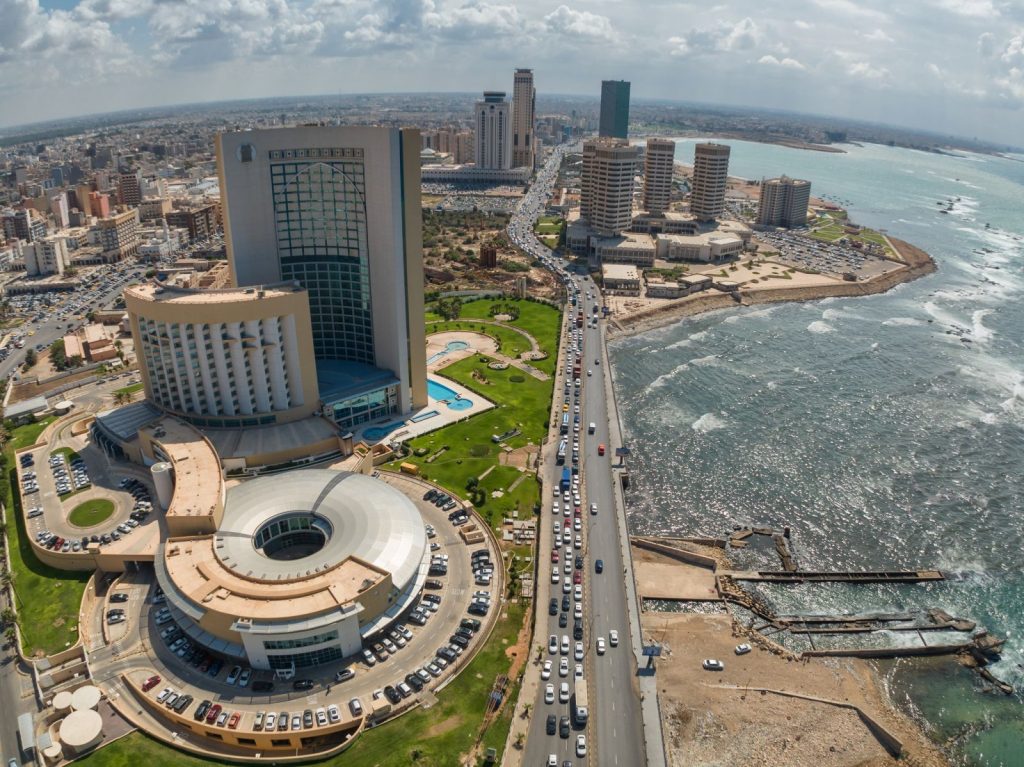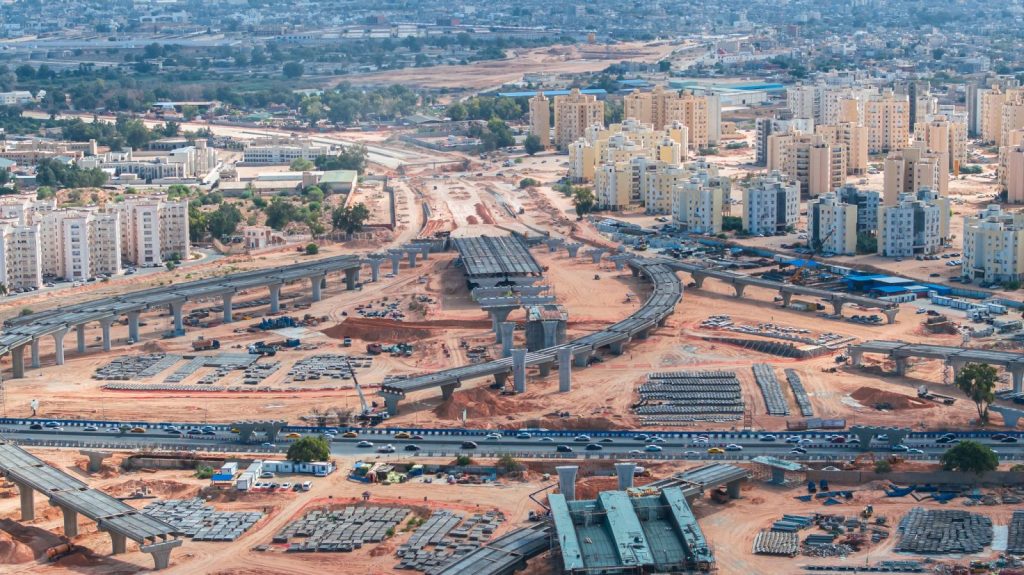Tendering plays a vital role in Libya’s development and growth. At Qabas, we know the intricacies of the Libyan tendering process and are committed to guiding our clients through every step with expertise and precision.
As the leading Libya-based service provider, we set industry benchmarks by offering innovative solutions tailored to your needs. Our team of dedicated professionals ensures each tender we handle meets the highest standards of excellence, allowing your projects to thrive in a competitive environment.
Partner with Qabas and experience a streamlined tendering process backed by our unwavering commitment to quality and strategic success.
Table of Contents

Overview Of Tendering In Libya
Regulatory Framework
Tendering in Libya operates under Decree No. 12 of 2023, which mandates the use of public tenders to ensure fairness and competition. This regulatory framework allows for limited tenders or direct commissioning in specific scenarios, enhancing flexibility while maintaining strict oversight. Our expertise in navigating Decree No. 12 ensures compliance and maximises efficiency in the procurement process. As a Libya-based service provider, we adhere to the highest ethical standards, ensuring transparency and integrity in all our tendering activities.
Transparency and eProcurement
To bolster transparency, Libya has implemented eTendering platforms that provide real-time access to procurement opportunities. Currently, approximately 42 government contracts are active on these digital platforms, reflecting a significant shift towards streamlined and accessible tendering processes. Our utilisation of eTendering technology facilitates seamless participation in these opportunities, allowing us to respond promptly and effectively to government needs. By leveraging these platforms, we enhance the accessibility of tendering processes for both local and international businesses, reinforcing our reputation as a trusted and reliable partner in Libya’s procurement landscape.
Legal And Regulatory Framework
Understanding Libya’s legal and regulatory landscape is essential for successful tendering. Our expertise ensures adherence to all pertinent laws and regulations.
Key Legislation Governing Tendering
Libyan tendering operates under several key legislations:
- Decree No. 12 of 2023 for Promulgating the Regulation of Government Procurement
- Establishes principles of publicity, transparency, and equal opportunity.
- Requires government entities to engage authorized persons.
- Mandates clear, accurate information dissemination to competitors.
- Obligates tender announcements on designated platforms.
- Administrative Regulation No. 563 of 2007
- Specifies rules for contracts with government and public authorities.
- Integrates with the Civil Code and other administrative regulations.
- Defines procedures for bid submission and evaluation.
- Council of Ministers Resolutions
- Provide additional guidelines and amendments to procurement processes.
- Ensure alignment with national development objectives.
- Address sector-specific tendering requirements.
Licensing And Compliance Requirements
Operating within Libya necessitates strict compliance with licensing standards:
- Registration with Authorized Procurement Platforms
- Ensures eligibility for participating in government tenders.
- Requires verification of company credentials and capabilities.
- Adherence to Ethical Standards
- Maintains integrity and prevents corrupt practices.
- Involves regular audits and compliance checks.
- Submission of Required Documentation
- Includes financial statements, technical proposals, and legal certifications.
- Must meet deadlines and format specifications as per regulations.
- Keeps abreast of changes in procurement laws and guidelines.
- Facilitates timely adjustments to tendering strategies.
Our Libya-based team excels in navigating these requirements, ensuring that all tendering activities uphold the highest ethical standards and regulatory compliance.

Types Of Tendering Procedures
Understanding the different tendering procedures is essential for effective procurement in Libya. We navigate these methods to ensure compliance and optimal outcomes for our clients.
Open Tendering
Open tendering serves as Libya’s primary and most transparent procurement method. Under Decree No. 12 of 2023, all qualified suppliers can submit bids unless technical specifications or national security considerations necessitate otherwise. This procedure mandates that all works and purchases are announced through a public tender on the designated eTendering platform. Open tendering fosters fairness, equal opportunity, competitive pricing, and encourages innovative solutions among approximately 42 active government contracts.
Restricted Tendering
Restricted tendering, also known as limited tendering, applies in specific scenarios as outlined in Decree No. 12 of 2023. We utilise this method when only a limited number of suppliers or contractors are available. Additionally, it is employed when the estimated value of the business or purchases does not exceed 350,000 Libyan Dinars. This approach ensures that procurement remains efficient and targeted, maintaining high standards while accommodating smaller-scale projects.
Negotiated Tendering
Negotiated tendering involves direct discussions with one or more suppliers to establish contract terms. Although less common, this method is employed when open or restricted tendering is impractical. Situations such as urgent project requirements or specialized services that only certain suppliers can provide necessitate negotiated tendering. We adhere strictly to ethical standards and regulatory guidelines during this process to ensure transparency and integrity.
Key Stakeholders In The Tendering Process
Government Agencies
Government agencies play a pivotal role in Libya’s tendering process. The Central Tender Board (CTB) oversees all government procurement activities, ensuring that tender notices, bid documents, and contract awards are managed efficiently since its establishment. The Public Procurement Portal (PPP) serves as an electronic platform enabling suppliers to register and submit bids seamlessly. Additionally, the Ministry of Finance publishes procurement plans annually, outlining government expenditure and procurement priorities. The Audit Bureau ensures transparency and compliance throughout the tendering process, as demonstrated when it collaborated with the Ministry of Health to activate a public tender for medicine imports in 2023 after a decade of inactivity. Our expertise in navigating these agencies facilitates smooth interactions and adherence to regulatory requirements.
Contractors And Suppliers
Contractors and suppliers are essential participants in Libya’s tendering landscape. They engage with the Public Procurement Portal (PPP) to register and access procurement opportunities. By submitting competitive bids through the Central Tender Board (CTB), suppliers contribute to the transparent and competitive environment mandated by Decree No. 12 of 2023. Our team provides support to contractors and suppliers by ensuring accurate bid submissions and compliance with the Ministry of Finance‘s procurement plans. We maintain ethical standards throughout the tendering process, reinforcing trust and reliability in our partnerships with suppliers and contractors.

Challenges Faced In Tendering
Libya’s tendering processes encounter several obstacles that impact procurement efficiency and effectiveness.
Bureaucratic Hurdles
Navigating Libya’s bureaucratic landscape is complex. For example, the Libyan Ministry of Health faced significant delays in implementing a public tender for medicine imports. The tender process remained inactive for nearly a decade, and the 2019 initiative was not executed. It required the formation of a committee and coordination with the Audit Bureau to reactivate the tender process in 2024. Our expertise in managing such bureaucratic challenges ensures that tendering activities proceed smoothly and efficiently.
Security And Political Instability
Libya’s ongoing security and political instability heavily impact tendering processes. Unilateral actions by various political, military, and security actors increase tensions and deepen institutional divisions. These factors complicate efforts to establish a stable and negotiated political solution, thereby disrupting the continuity and reliability of tender procedures. As a Libya-based service provider, we adeptly navigate these instability factors to maintain the integrity and progress of tendering projects.
Transparency And Corruption Issues
Transparency remains a significant challenge in Libya’s tendering framework. Instances of corruption and lack of accountability undermine fair competition and erode trust in the procurement system. Our commitment to ethical standards ensures that all tendering activities are conducted with the highest levels of transparency and integrity. By implementing rigorous compliance measures and maintaining open communication channels, we foster a trustworthy and equitable tendering environment.
Best Practices For Effective Tendering
Effective tendering in Libya requires meticulous preparation and strict adherence to regulatory standards. We implement best practices to ensure our tender submissions are competitive and fully compliant.
Preparing Competitive Bids
Preparing competitive bids involves several strategic steps to align with tender requirements and stand out in the selection process. We begin by thoroughly analysing the Invitation for Bids (IFB) to understand all specifications and criteria. Accurate pricing is essential; therefore, we conduct detailed cost assessments to present clear and realistic financial proposals. Highlighting our knowledge, capability, and relevant experience demonstrates our suitability for the project. Utilizing evaluation methods such as the Analytic Hierarchy Process (AHP) and Technique for Order Preference by Similarity to Ideal Solution (TOPSIS) allows us to optimise our bids based on multiple criteria, ensuring a balanced and competitive submission. By focusing on responsiveness and tailoring each bid to meet the specific demands of the tender, we enhance our chances of securing contracts efficiently.
Ensuring Compliance And Documentation
Compliance with Libya’s legal and regulatory frameworks is paramount in the tendering process. We adhere to Decree No. 12 of 2023, which mandates public tenders to uphold principles of publicity, transparency, and equal opportunity. Additionally, we comply with Administrative Regulation No. 563 of 2007, ensuring all contractual obligations with government entities are met. Our team is registered with authorised procurement platforms, facilitating seamless participation in tenders. We maintain rigorous documentation practices, ensuring all required forms, certifications, and ethical standards are meticulously prepared and submitted. Leveraging eTendering platforms enhances our transparency and accessibility, allowing us to manage multiple active contracts effectively. By maintaining an ethical stance and upholding anti-corruption measures, we ensure that all tendering activities are conducted with integrity and in full compliance with Libyan regulations.

Future Prospects And Trends
Libya’s tendering landscape shows significant advancements, positioning the nation for substantial growth in the oil and gas sector.
Digitalisation Of Tendering Processes
We leverage advanced eTendering platforms to enhance transparency and efficiency in Libya’s tendering processes. Implementing digital solutions allows us to manage approximately 42 active government contracts seamlessly. By utilising these platforms, we ensure accurate bid submissions, real-time tracking, and secure documentation. Our digitalisation efforts support Libya’s commitment to modernising procurement, reducing bureaucratic delays, and fostering a more open and competitive bidding environment.
International Partnerships And Investments
Libya plans its first oil and gas tender since 2011, anticipating a bid round by late 2024 or early 2025. This initiative aims to attract international investors to increase domestic production, targeting 2 million barrels per day over the next three to five years.
Key areas for the tender include:
- Sirte Basin
- Murzuq Basin
- Ghadames Basin
The tender offers both onshore and offshore blocks, reflecting Libya’s renewed momentum in the oil industry following the resolution of government rivalries. To support these ambitions, an estimated $4 billion in local infrastructure improvements is required, according to Wood Mackenzie.
As a Libya-based service provider, we facilitate international partnerships by ensuring compliance with Decree No. 12 of 2023 and promoting ethical investment practices. Our expertise in navigating the Libyan regulatory framework allows us to connect global investors with strategic opportunities, fostering sustainable growth and development in Libya’s oil and gas sector.
| Tender Details | Information |
|---|---|
| Bid Round Timeline | End of 2024 to early 2025 |
| Production Target | 2 million barrels per day (MMb/d) |
| Key Basins | Sirte, Murzuq, Ghadames |
| Block Types | Onshore and Offshore |
| Infrastructure Investment | $4 billion |
Conclusion
We appreciate the complexities of tendering in Libya and are committed to guiding our partners through every step. Our expertise ensures that tender processes are managed efficiently and ethically, fostering successful outcomes even in challenging environments. Embracing advancements in eTendering, we enhance transparency and accessibility, making procurement smoother for all stakeholders. As Libya continues to develop, especially in the oil and gas sector, we are ready to support sustainable growth and innovative projects. Partnering with us means leveraging our deep understanding of the regulatory landscape and our dedication to excellence. Together, we can navigate Libya’s tendering landscape effectively and achieve outstanding results for your projects.
Frequently Asked Questions
What is the role of tendering in Libya’s development?
Tendering is essential for Libya’s development as it ensures fair competition, transparency, and efficiency in procuring goods and services. By facilitating the allocation of resources to qualified suppliers, tendering promotes sustainable infrastructure projects, attracts international investment, and supports economic growth in various sectors.
How does Qabas assist with the tendering process in Libya?
Qabas is a leading service provider in Libya’s tendering sector. The company offers expertise in navigating the local procurement landscape, ensuring compliance with regulations like Decree No. 12 of 2023. Qabas provides tailored, high-quality solutions and leverages eTendering platforms to enhance transparency and efficiency, helping clients successfully secure and manage tenders.
What is Decree No. 12 of 2023?
Decree No. 12 of 2023 is a key regulation governing tendering in Libya. It mandates public tenders to promote fairness and competition while allowing limited tenders in specific scenarios. This decree establishes principles of transparency, equal opportunity, and adherence to ethical standards, ensuring that procurement processes align with Libya’s development objectives.
What types of tendering procedures are used in Libya?
Libya employs several tendering procedures, including open tendering, restricted tendering, and negotiated tendering. Open tendering is the most transparent, allowing all qualified suppliers to bid. Restricted tendering targets specific suppliers for particular projects, while negotiated tendering is used for urgent or specialised requirements. Each method ensures appropriate competition and project alignment.
What challenges are faced in Libya’s tendering processes?
Tendering in Libya faces challenges such as bureaucratic hurdles, security and political instability, and issues related to transparency and corruption. These obstacles can delay projects and undermine trust in the procurement system. Companies like Qabas work to overcome these challenges by maintaining high ethical standards and ensuring strict compliance with regulatory requirements.
How does Qabas ensure compliance with Libyan regulations?
Qabas ensures compliance by employing a knowledgeable Libya-based team familiar with key regulations like Decree No. 12 of 2023 and Administrative Regulation No. 563 of 2007. The company adheres to licensing and registration requirements, maintains thorough documentation, and follows ethical standards, ensuring all tendering activities meet legal and regulatory standards.
What are eTendering platforms and their benefits in Libya?
eTendering platforms are digital systems that facilitate the tendering process by enhancing transparency and accessibility. In Libya, these platforms support around 42 active government contracts, allowing suppliers to register and submit bids online. Qabas utilises these platforms to manage contracts efficiently, respond to government needs promptly, and ensure a transparent procurement process.
What are the future trends in Libya’s tendering landscape?
Future trends in Libya’s tendering landscape include the digitalisation of procurement processes, especially in the oil and gas sector, which is set for significant growth. The introduction of advanced eTendering platforms will improve transparency and efficiency. Additionally, Libya plans its first oil and gas tender since 2011, aiming to attract international investors and achieve production goals by 2025, with Qabas playing a key role in facilitating these developments.
Who are the key stakeholders in Libya’s tendering process?
Key stakeholders include government agencies like the Central Tender Board (CTB) and the Ministry of Finance, contractors, and suppliers. The Public Procurement Portal (PPP) serves as a platform for registration and bid submission. Additionally, the Audit Bureau ensures transparency, while companies like Qabas support contractors and suppliers in navigating the tendering process and maintaining compliance with regulatory standards.
What best practices should be followed for effective tendering in Libya?
Effective tendering in Libya involves meticulous preparation, including thorough analysis of Invitations for Bids (IFB), accurate pricing, and showcasing relevant experience. Compliance with legal frameworks like Decree No. 12 of 2023 and Administrative Regulation No. 563 of 2007 is crucial. Utilizing evaluation methods such as AHP and TOPSIS, maintaining rigorous documentation, and leveraging eTendering platforms are essential best practices for successful tender submissions.




